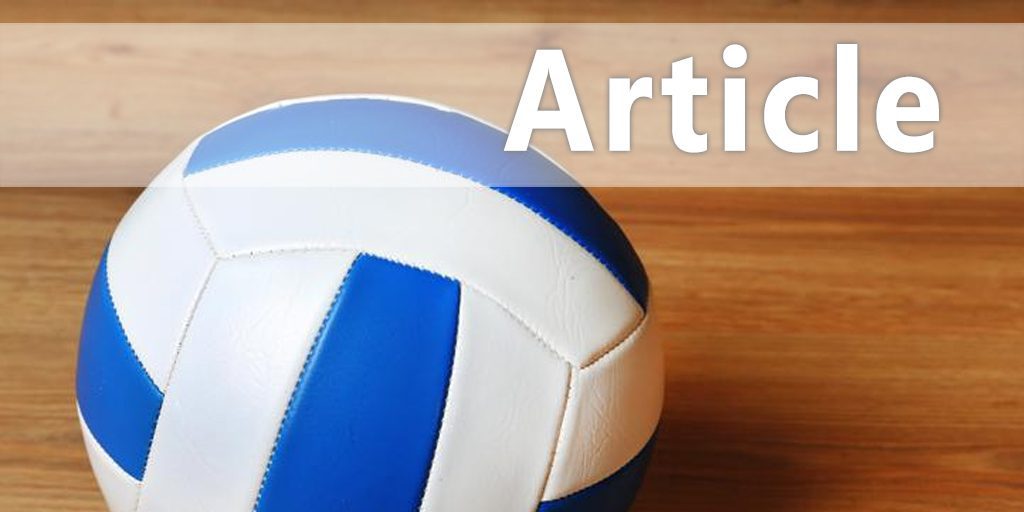| "Leadership Through Team"
Inception We realized that we needed to be intentional about building leaders within the program. Implementation First we started to do leadership training with some of our players. There were many leadership books out there from which to choose, so we picked a few that we adapted to our program. I would meet several times with the players to go through these books highlighting applicable themes and practical applications. We focused on defining leadership, risks/rewards/responsibilities of leadership, commitment, confidence, character, honor, integrity, servant leadership, and how to instill all of these characteristics in themselves and their teammates. We found that just going through this intentional exercise with players created a change in their mindset from "me" to "we." They started to realize how important it was for them to become good leaders and that their teammates and the program were depending on them to help lead them to their goals. This all wraps around a general idea of selflessness in an MIT environment that can sometimes cause students to become very self-absorbed. We really try to drive home the principles of being a selfless leader where one's purpose is shifted from pursing personal goals, which for players can translate into individual accolades and awards, to giving themselves in service of others, which translates into making those around you better players or even better people. In the beginning, leadership training was only done with those who were elected captain. Then we branched out and started doing it with others that we thought showed leadership potential, then all seniors; finally we have reached a place where we are training all players after their sophomore season. The next step was to implement class meetings. This would entail meeting with each class during the off season to talk about several things such as:
We try to get across the message that as you move through the program from year to year, it becomes less about you and more about the team. By junior and senior year, having a positive attitude, a good work ethic, and taking care of yourself physically, academically, and socially is assumed to be the baseline of what you are doing. By that time, it is what you are doing to make everyone around you better, and how you are leading that will take you to the next level as a team. Another piece we have started is assigning each freshman an upperclassman to be his or her academic mentor. This player will meet with the assigned freshmen several times per semester to talk about what type of things he or she is experiencing academically, socially and athletically. Giving the upperclassmen someone that they are responsible for provides them with another leadership opportunity as well as provides an intentional support system for the new players. Finally, we talk a lot about having a vision in our program. In our one-on-one meetings throughout the season, each player creates an individual vision of who he or she want to be as a member of our program. They talk about what kind of teammate they want to be, what kind of players they want to be, and what kind of reputation they want to have amongst their teammates, on campus, and amongst our competition. This gets them to start actually thinking about what kind of players and people they want to be, and we revisit this several times during the season to see if they are indeed being those people. They are asked to hold themselves accountable to living that vision every day in their actions, how they interact with their teammates, how they react to different situations, how they practice, and how they carry themselves on and off the court. At any point in time, I can ask them, "Who are you being right now?" and this reminds them of the goals they set for themselves. We also create a team vision for ourselves. Who do we want to be as a team? What do we want our reputation to be on campus and within the region? We talk a lot about this throughout the season and make sure we are holding ourselves to a very high standard. This vision is then how we measure our success as a team and a program. If at the end of a season we can say we were the team we wanted to be, then no matter the wins and losses, we were successful and can feel good about what we accomplished. Impact First of all, it has had a tremendous impact on the team dynamic, team culture, and success of both our men's and women's programs. A great deal of our success can directly be attributed to what we are doing with our leadership initiatives. They have created a team culture that takes collective responsibility for their actions, their interactions, how they practice and what type of program they want to be. They have taken ownership of the program and take great pride in how it does things. We always tell them. "It's not about you," and they really start to take on that mindset which gets them to play for each other and not themselves. This team mindset helps them to become much greater than the sum of their parts, which in turn leads to their success on the court. Finally and most importantly, I have seen our leadership program have a tremendous impact on the individuals. They really learn about taking responsibility for their own environment. Instead of playing the "blame game" when they are not happy about something, they learn to look at themselves first and ask, "What have I done to make it better?" They learn about accountability in that they are asked to hold themselves to a certain standard in regards to their individual vision for who they want to be. They get a sense of being a part of something bigger than themselves, and truly realize that selfless leadership is the key to being a good leader. Since we have implemented this program, there have been many positive changes within our men's and women's volleyball programs. The basic tenet is that you must be as intentional about training leadership as you are about training any volleyball skill. Through leadership training they are exposed to the tools and an overall program culture that enables leadership as well as |
|
About the Author... |
|
|
| Head Coach: Paul Dill pdill@mit.edu
Since his graduation from Bates College in 1989, Coach Dill's involvement in volleyball has spanned both sexes, nearly all age groups, and two continents. Paul looks to continue the building of what has become one of the premier Division III volleyball programs in New England. Coach Dill has worked with the MIT volleyball program since he became an assistant coach in 1992. He served as assistant coach for three years for both the women's and men's varsity programs before being named Head Coach in 1996. Since then, Paul has guided the women's team to six NCAA Tournaments and two ECAC Tournament Championships. In 2007, the Engineers posted a record of 36-3, won five tournament championships, qualified for the NCAA Division III National Championship Tournament for the fourth time in six years (making it to the Sweet 16), and finished with a New England regional ranking of No. 2 out of 73 teams. In 2004, Coach Dill took of the reigns of the men's varsity program at MIT as well, and within two seasons duplicated his success with the women's program. Over the past five seasons, he has led the men's program to the seven best seasons in program history with records of 23-7, 23-9, 27-6, 25-11, 25-12, 31-8 and 29-7. The team has gone to seven straight post season tournaments, won NECVA New England Titles in 2007 and 2011, and has been ranked as high as #6 on the National Poll. Paul coached the University of Connecticut men's volleyball club team while earning his MBA degree, served as manager of the Bates College women's team as an undergraduate, and has coached the men's open division of the Bay State Games. Paul also co-coached the England Women's Junior National Team for four years, and was an assistant coach for a Division I National League women's club team in the English Volleyball Association. As a player, Coach Dill has captained the Bates College team, the University of Connecticut team and several USAV teams. Overall Record: Women's: 402-142 / Men's: 207-82 Overall Winning %: Women's: .740 / Men's: .716 NEWMAC Conference Coach of the Year 2002 NEWVA New England Coach of the Year 2006 & 2007 AVCA New England Region Coach of the Year 2006 & 2007 NECVA New England Division Men's Coach of the Year 2007, 2011 & Co-Coach 2010 |






